Adil Najam
I am most pleasantly surprised that readers have so quickly figured out the mystery man in our latest ATP Quiz. Since they have, let me add a little more information and let the discussion continue.
I am not sure, however, how many readers know of Muhammad Asad or of his connection to Pakistan. Let me confess that until fairly recently I did not; at least not of the Pakistan connection. As I have gotten to know more about this connection, I have gotten more and more intrigued – all the more so because there is relatively little in his own writings or that of others about this.
But lets start from the beginning.

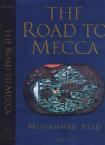 Asad was born in 1900 as Leopold Weiss to Jewish parents in Lvov (then part of the Habsburg Empire, now in Ukraine). He moved to Berlin in 1920 to become a journalist and traveled to Palestine in 1922. It was there that he first came into contact with Arabs and Muslims and began a long journey into Muslim lands and minds that eventually led to his embracing Islam in 1926. His bestselling autobiography Road to Mecca (published 1954) recounts these years in vivid and captivating detail., including his adventures in Arabia and in working with King Ibn Saud and the Grand Sanusi, amongst others.
Asad was born in 1900 as Leopold Weiss to Jewish parents in Lvov (then part of the Habsburg Empire, now in Ukraine). He moved to Berlin in 1920 to become a journalist and traveled to Palestine in 1922. It was there that he first came into contact with Arabs and Muslims and began a long journey into Muslim lands and minds that eventually led to his embracing Islam in 1926. His bestselling autobiography Road to Mecca (published 1954) recounts these years in vivid and captivating detail., including his adventures in Arabia and in working with King Ibn Saud and the Grand Sanusi, amongst others.
Later in his life, after retiring in Spain, he spent 17 years working on an English translation of the Quran which was first published in 1980. Many consider this to be one of the finest English translation of the Quran – some argue this is because he himself was fluent in bedouin Arabic which is closest to the Arabic in the Quran, others suggest that since he was himself a European and wrote in more understandable idiomatic English his translation is most accessible to non-Arabic speakers.
As a lay-reader who ver the years has read a number of English translations, including his, I do find Asad’s translation – The Message of the Quran – to be easier to read than those by Abdullah Yusuf Ali or Marmaduke Pickthall which are amore formal and literal translations. Unlike the translations by Prof. Ahmed Ali (my particular favorite) and by Thomas Cleary which are also in contemporary idiom and very readable, the Mohammad Asad translation has the added virtue of also having commentary and explanations, and the new edition is wonderfully presented, printed in the highest quality, and with tasteful calligraphy. All in all, Mohammad Asad’s The Message of the Quran is the translation that I now recommend to friends, Muslims as well as non-Muslims.
But I digress. Much as I like Muhammad Asad’s translation of the Quran and especially in its new printing, that is not the subject of this post. The subject of the post is his ‘Pakistani connection’ and also why we do not find much about that connection in his writings. Here is what we know.
By the early 1930s Asad had gotten rather disenchanted by King Ibn Saud and his religious advisors (see Road to Mecca) and had begun travelling Eastwards into other Muslim lands. This brought him to British India and there he met and became a good friend of Dr. Mohammad Iqbal. Indeed, Iqbal encouraged him to write his book Islam at the Crossroads (published 1934); whose cover has the following testimonial from Iqbal:
“I have no doubt that coming as it does from a highly cultured European convert to Islam, it will prove an eye-opener to our younger generation.” Muhammad Iqbal.
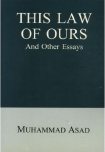
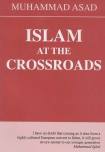
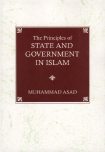
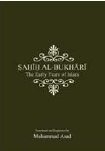
During World War II imprisoned him in a camp for enemy aliens (because of his Austrian nationality) while his father was interned by the Nazis because he was Jewish. After the War he fervently threw his all behind the demand for Pakistan. Upon the creation of Pakistan, he saw himself very much a ‘Pakistani’ as did those he worked with (reportedly even took to wearing the achkan). In 1947 he became the director of the Department of Islamic Reconstruction in West Pakistan and worked on a treatise with ideas for the Constitution of Pakistan. Many of these ideas (which were mostly related to creating a multi-party parliamentary democracy) were reproduced in his later books but he was not very successful in getting them implemented.
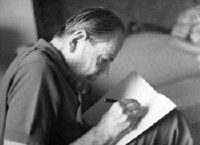 In 1949 Asad joined the Pakistan Foreign Ministry as head of the Middle East Division and eventually in 1952 came to New York as Pakistan’s representative to the United Nations. Here he met the woman who would become the last of his wifes (Pola Hamida). Whether it was the fact that he married her and divorced his earlier wife or the messiness of Pakistani politics, it was in this period that he fell out with the powers in Pakistan and resigned from the Foreign Ministry. He decided to stay on in New York to write Road to Mecca, which became a major success. He never really returned to Pakistan (although, supposedly, Gen. Zia ul Haq tried to get him back) and died in Europe in 1992.
In 1949 Asad joined the Pakistan Foreign Ministry as head of the Middle East Division and eventually in 1952 came to New York as Pakistan’s representative to the United Nations. Here he met the woman who would become the last of his wifes (Pola Hamida). Whether it was the fact that he married her and divorced his earlier wife or the messiness of Pakistani politics, it was in this period that he fell out with the powers in Pakistan and resigned from the Foreign Ministry. He decided to stay on in New York to write Road to Mecca, which became a major success. He never really returned to Pakistan (although, supposedly, Gen. Zia ul Haq tried to get him back) and died in Europe in 1992.
It was his estrangement with the Pakistan government that pushed him back into writing and produced two amazing works – Road to Mecca and The Message of the Quran. However, here once again is a story of one who wished to give his all to Pakistan and we did not let him.
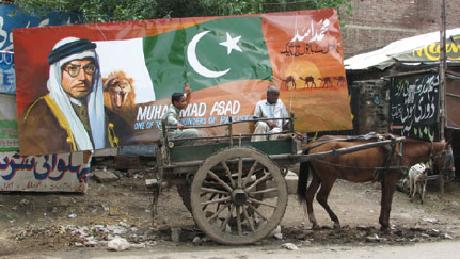
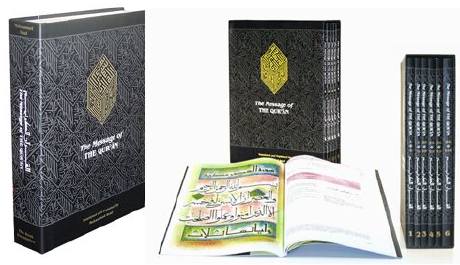
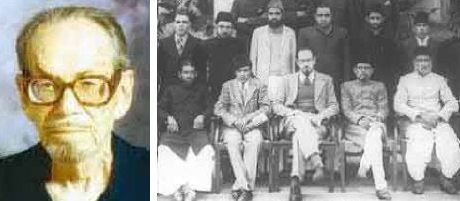



















































but Admin this Asad sahab was a convert so asusual it raises questions among others that why did he choose Islam over Judaism.
What I think that we born muslims are not right candidate to ask, “Is Islam good?” because majority of us would say ‘Yes’, intentially or unintentially. Same goes with followers of other religions as well. I have a very good Aussie Christian friend who belongs to my community[I.T] and he has a good knowledge of Christianity. We often discuss about conflicts between 2 great religions and despite of he does admit about the loophole introduced later in orignal teachings, he still says that His religion is true rest are not.
There are books available in market in which new converts talks about why did they accept Islam. Asking us about our religion is like somebody ask a “Phal wala” about quality of his fruits. Offcourse he wouldn’t call it bad. God gave you sense to taste fruit yourself and reach to some conclusion. As Alvi said, go thru the orignal texts and decide yourself what you think about it. Don’t criticize a religion due to its followers because followers could distract from orignal path. It’s like I start giving bad names to MIT just because a bunch of students didn’t perform well.
Once again we remind people to remain on topic and respect ATP comment policy. There are plenty of other more appropriate forums for broad theological discussions, and this is not one of them.
“Ostracization is a form of persecution and harassment.”
JJ: You are right. That is why Islam is against the ‘Caste System’ prevalent in certain religions and societies. On its part Islam stands for equality of all mankind at birth. In Islam every human being is born innocent and free of sin. All human beings are equal in the eyes of God. No one is ‘Son of God’ and no one is born from the ‘Head of God’ or for that matter from the ‘Feet of God’. No one is born ‘Untouchable’. No body is superior or inferior by birth. That is the beauty of Islam that has attracted millions of those out-casted by the others into its folds. Islam does not discriminate against people. Islam does not out-caste but rather accepts the outcasts into its ranks. However Muslims do shun away from those who leave Islam for other religions. But that is neither ‘ostracization’ nor ‘persecution’ nor ‘harassment’. Association is a personal choice. There are no untouchables in Islam. Fear not my friend. Study Islam. It is a beautiful religion. You may like it after all.
Jayjay, why don’t you come up with points which prove Islam is NOT a better religion and your religion[if there is any] better than Islam?
@Ibrahim: Correction. Jesus[AS] never said that He’s in this world to take away the sins of his followers. That’s all misinterpetition and injection of people who came after him and altered the book.
[quote post=”660″]Contrary to your thinking, a Muslim who openly converts to an other religion does not have to go into hiding. He or she is simply socially out casted from the Muslim community. [/quote]
Mr Alvi: Ostracization is a form of persecution and harassment.
[quote post=”660″]No religion is better than other as there are no quantifiable measures for such comparison, except the repute, and success, of the followers of a particular ideology/faith to an extent.
Please, read and learn about Islam and what it asks from its followers. If you want, people can suggest books. [/quote]
Are you implying that Islam is better than all other religions? If so, what makes you say that?